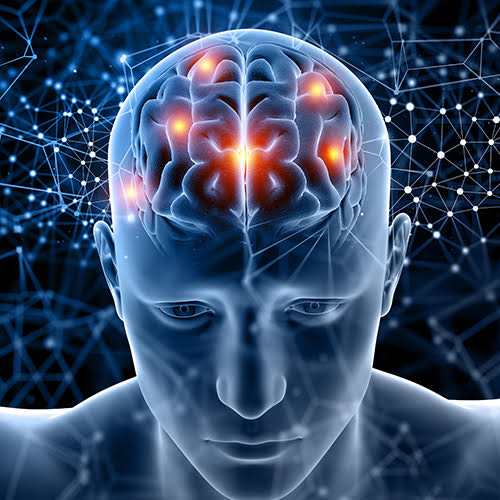Dear Reader, it’s been a while since the last blog of waffle yet I wanted to touch base with something I trained to do a long while ago, and yes… certified a certification in, while my kids were still young, I tried to keep myself busy with learning whole housebound being and active mother of two and educational add onto my exercise certification and degree. Its a great insightful read so enjoy and welcome to the world of NLP. As a strong proponent of NLP, I believe that by retraining thought patterns and neurological pathways to realign the body, we can correct unhealthy habitual postures and movements. This can alleviate pain in joints and improve overall well-being. Poor posture and misaligned kinetic energy, often stemming from rounded shoulders, can negatively impact the hips, knees, back, and core, eventually leading to aches, pains, and a diminished quality of life. To enhance posture using NLP and exercise, combine exercises that strengthen core and back muscles with NLP techniques that boost body awareness and correct movement patterns. NLP assists in retraining the brain to identify and fix poor posture, while exercise strengthens the necessary muscles.
Posture Exercises:
- Core Strengthening: Exercises such as planks, dead bugs, and bird dogs are essential for spinal support and posture.
- Back Strengthening: Exercises like back extensions, resistance band rows, and Supermans help strengthen back muscles to prevent slouching.
- Chest and Shoulder Openers: Doorway stretches, chest stretches, and shoulder blade squeezes improve flexibility and reduce tension in these areas.
- Neck Exercises: Neck retractions (chin tucks) and neck stretches can improve neck posture and relieve tension.
- Yoga and Tai Chi: These practices enhance body awareness, flexibility, and core strength, all beneficial for posture.
NLP Techniques for Posture:
- Body Awareness: NLP can sharpen your ability to sense your body’s position and movement, enabling you to identify and correct postural imbalances.
- Reframing: NLP can help you change your perspective on posture, viewing it as a flexible aspect of your body rather than a fixed state.
- Anchoring: You can establish anchors, such as a specific word or physical sensation, to trigger positive posture habits during daily activities.
- Submodalities: NLP techniques involving visual, auditory, and kinesthetic elements can create a more positive and confident experience of good posture.
- Rapport with Your Body: NLP can foster a better connection with your body, allowing for more effective identification and resolution of postural issues.
Integrating these NLP techniques with a targeted exercise program can lead to lasting improvements in posture, enhancing both physical and mental well-being
Natural Language Processing (NLP) also significantly benefits mental health and can be incorporated into various therapies for Depression, Anxiety, ADHD Management, and Chronic Fatigue Syndrome (CFS) & Myalgic Encephalomyelitis (ME).
NLP serves as a valuable tool for both therapeutic support and diagnostic insights in this context.
How NLP Aids in Enhancing Self-Help Interventions: NLP models can be integrated into digital platforms to provide personalized support and guidance for individuals with depression, potentially improving self-management.
- Identifying Depression Through Language Analysis: NLP can analyze patterns in written and spoken language to detect indicators of depression, even when individuals may not fully recognize their symptoms.
- Facilitating Remote Assessment and Monitoring: NLP enables the remote collection of data, allowing for ongoing monitoring of mental health progress without frequent in-person visits.
- Supporting Therapy: NLP can analyze conversations between therapists and patients to identify areas for therapeutic adjustments and improvements.
Examples of NLP Applications in Addressing Depression:
- Sentiment Analysis: By analyzing the emotional tone of text, NLP can identify negative sentiment patterns that may suggest depression.
- Keyword Extraction: NLP can identify specific words or phrases used by individuals that are characteristic of depressive symptoms.
- Machine Learning: NLP models can be trained to classify individuals as having or not having depression based on their language patterns.
Important Note: While NLP offers promising advancements in mental health, it should be considered a supplementary tool and not a replacement for professional medical care and established therapies.
What is NLP
NLP is also defined as a collection of tools and techniques designed to:
- Increase confidence and self-esteem.
- Develop and maintain strong relationships.
- Improve performance across all life domains.
- Enhance communication skills.
- Boost motivation.
- Address and overcome problematic behaviors.
- Foster effective leadership skills.
- Develop strong negotiation and influencing abilities.
- Optimize sales performance.
- Release limiting beliefs and improve overall effectiveness.
- Enhance problem-solving abilities.
- Manage pressure effectively.
- Alleviate anxiety.
- Set and achieve realistic goals.
- Model excellence in various fields.
Improving Mental Wellbeing with NLP: Considerations for Depression, Anxiety and ADHD
NLP techniques can contribute to improved mental wellbeing, especially for individuals with depression or ADHD, by facilitating the reframing of negative thoughts, building self-confidence, and promoting more effective coping strategies.
How NLP Can Support Individuals with Depression:
- Reframing Negative Thoughts: NLP techniques assist individuals in challenging and changing negative thought patterns associated with depression, fostering more positive and realistic perspectives.
- Setting Achievable Goals: NLP emphasizes breaking down larger goals into smaller, manageable steps, which can be particularly helpful for individuals experiencing low motivation and fatigue due to depression.
- Building Confidence and Self-Esteem: NLP techniques can help individuals identify and challenge negative self-perceptions, leading to increased self-worth and confidence.
- Developing Coping Mechanisms: NLP equips individuals with tools to manage negative emotions, reduce anxiety, and develop healthy strategies for coping with difficult situations.
- Improving Communication Skills: NLP can help individuals communicate more effectively, which can be crucial for reducing social isolation and building a supportive network.
How NLP Can Assist Individuals with ADHD:
- Improving Focus and Attention: NLP techniques can help individuals with ADHD improve their attention span, focus, and reduce impulsive behaviors.
- Developing Organizational Skills: NLP can aid individuals with ADHD in developing better organizational and time management skills, leading to more effective task management.
- Building Self-Esteem and Confidence: By addressing negative self-beliefs and promoting a more positive self-image, NLP can help individuals with ADHD build confidence and self-esteem.
- Managing Emotional Dysregulation: NLP techniques can help individuals with ADHD learn to better regulate their emotions, reduce impulsivity, and manage frustration.
- Creating Routines and Structure: NLP can assist individuals with ADHD in establishing and maintaining beneficial routines and structures to support their daily lives and reduce feelings of being overwhelmed.
Important Considerations:
- Professional Guidance: While NLP can be a valuable tool, seeking guidance from qualified therapists or counselors is essential, particularly for individuals with diagnosed mental health conditions.
- Individualized Approach: NLP techniques should be tailored to meet the unique needs and challenges of each individual. Effectiveness can vary.
- Integration with Other Therapies: NLP is often most effective when used in conjunction with other evidence-based therapies, such as Cognitive Behavioral Therapy (CBT), and medication, when recommended by healthcare professionals.
- Emphasis on Self-Awareness: NLP highlights the importance of self-awareness and understanding one’s own thoughts, feelings, and behaviours as a critical step in fostering positive change.
- Building a Support System: Encouraging individuals with depression or ADHD to connect with others, build a strong support system, and seek professional help when needed is vital for their overall well-being.
In conclusion, the information presented suggests that NLP offers promising possibilities for enhancing mental and physical health by facilitating positive shifts in movement, weight distribution through body alignment, thoughts, feelings, behaviours, and communication styles. This can contribute to a more optimistic outlook and an improved overall quality of life.


